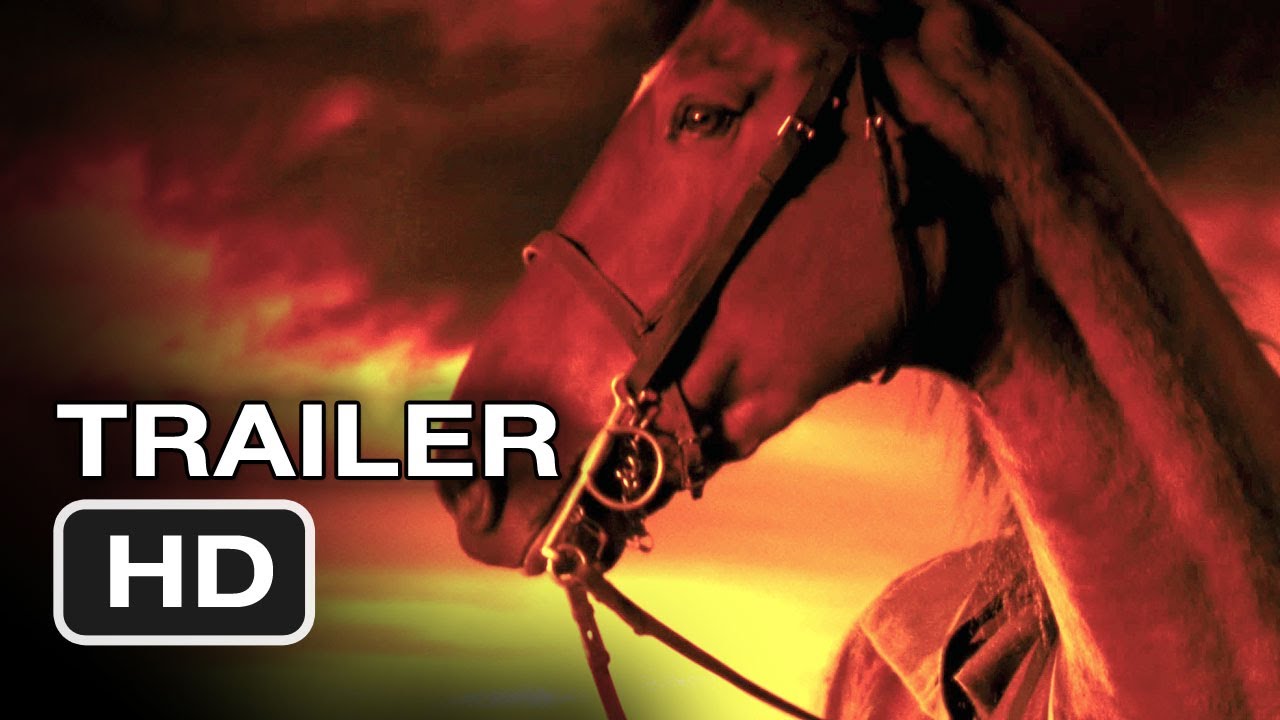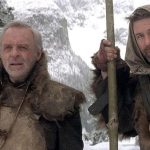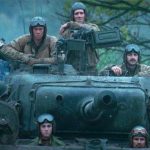War Horse (2011)

“War Horse,” directed by the legendary Steven Spielberg and released in 2011, is a visually stunning war film that explores the harrowing experiences of World War I through the eyes of an extraordinary horse named Joey. Based on the novel by Michael Morpurgo and adapted for the screen by Lee Hall and Richard Curtis, the film masterfully combines breathtaking cinematography, stirring performances, and a deeply emotional narrative, earning critical acclaim and several nominations, including an Academy Award nod for Best Cinematography.
The story begins on a Devonshire farm, where a young boy named Albert Narracott (played by Jeremy Irvine) forms a profound bond with a foal named Joey. This relationship is central to the film, symbolizing the connection between humans and animals amidst the chaos of war. Albert’s father, Ted (Peter Mullan), purchases Joey at an auction, intending to use him for farm work. However, Albert quickly recognizes the horse’s remarkable spirit and potential, nurturing their bond through love and care.
As the film progresses, the tranquility of rural life is shattered by the outbreak of World War I. When Albert’s father is compelled to sell Joey to the British cavalry, Albert is heartbroken. Joey is thrust into the horrors of war, serving as a cavalry horse for Captain Nicholls (Tom Hiddleston) and facing the brutal realities of battle. Spielberg’s direction emphasizes the contrasting worlds of innocence and brutality, showcasing how the war irrevocably alters lives—both human and animal.
One of the film’s standout features is its ability to convey the emotional weight of war through Joey’s perspective. While much of the narrative focuses on the human characters, Joey’s journey serves as a poignant reminder of the countless animals who suffered and endured during wartime. Spielberg employs stunning visual storytelling, utilizing sweeping landscapes, dynamic battle sequences, and intimate close-ups to capture the raw emotions experienced by both Joey and the soldiers around him.
The cinematography, led by Janusz Kamiński, is nothing short of breathtaking. The film showcases vast, rolling fields, the chaos of battle, and the stark realities of war-torn landscapes. The cinematographic choices enhance the emotional depth of the film, illustrating the beauty of the world that Joey roams while juxtaposing it against the horrors of conflict. The use of natural light, coupled with meticulous attention to detail, creates a vivid and immersive experience for the audience.
As Joey navigates the war, he encounters various characters that illustrate the different facets of humanity in times of crisis. One of the most poignant relationships is with a French farmer and his granddaughter, who care for Joey after he is separated from the British troops. This segment of the film underscores the universal impact of war, as it affects individuals regardless of their nationality. The kindness shown by the farmer and his granddaughter amidst the brutality of conflict serves as a powerful reminder of humanity’s capacity for compassion.

The performances in “War Horse” are compelling and emotionally resonant. Jeremy Irvine shines as Albert, capturing the character’s determination and bravery as he searches for Joey throughout the war. His journey reflects the longing and hope that persist even in the darkest of times. Supporting performances by Tom Hiddleston, Benedict Cumberbatch, and others contribute to the film’s rich tapestry of characters, each representing different perspectives on the war and its consequences.

The score, composed by the renowned John Williams, further enhances the film’s emotional impact. Williams’ sweeping orchestral compositions evoke a range of feelings, from the joy of companionship to the sorrow of loss, seamlessly intertwining with the narrative. The music elevates key moments, reinforcing the emotional weight of Joey’s journey and the overarching themes of love, loyalty, and sacrifice.

“War Horse” also serves as a meditation on the futility of war. As Joey is caught in the crossfire of human conflict, the film prompts viewers to reflect on the senseless violence and suffering that accompanies such struggles. Spielberg’s storytelling transcends mere war drama; it becomes a testament to resilience and the enduring bonds between beings in times of crisis. The film culminates in a powerful conclusion that emphasizes hope and the possibility of reconciliation, resonating with audiences long after the credits roll.

In conclusion, “War Horse” is a visually stunning and emotionally charged film that explores the experiences of World War I through the eyes of an extraordinary horse. Directed by Steven Spielberg, the film combines breathtaking cinematography, powerful performances, and a haunting score to create a poignant narrative about courage, connection, and the impact of war on both humans and animals. Through Joey’s journey, “War Horse” serves as a reminder of the sacrifices made during wartime and the enduring spirit of love and hope that can prevail even in the darkest of times. It stands as a testament to the profound relationships we share with animals and the universal themes of loyalty, sacrifice, and the quest for peace amidst the chaos of war.











